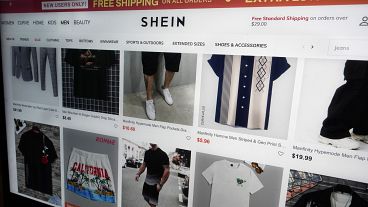By James Davey
LONDON -British clothing retailer Next beat guidance with a 17% rise in third-quarter full-price sales compared to 2019, before the pandemic disrupted trading, but maintained its full-year profit guidance as it expects sales growth to slow.
The lack of profit upgrade after four already this year sent Next's shares down 3.1% by 0837 GMT on Wednesday, paring year-on-year gains to 41%. The stock hit a record high in September.
Next, which trades from about 500 stores and online, said the impact of pandemic pent-up demand was likely to continue to diminish.
It said stock availability had improved since September but remained "challenging", with delays in its international supply chain being compounded by labour shortages in the UK transport and warehousing networks.
Next said that to date stock limitations had been offset by strong underlying demand.
"Although consumer finances are in good shape, price increases in essential goods (such as fuel) may moderate demand for more discretionary purchases," it added.
Next had reported in September that full-price sales in the first eight weeks of its fiscal third quarter had risen 20%.
It said on Wednesday they had risen 14% in the final five weeks of the period to Oct. 30. This was ahead of its forecast of 10% growth.
Third-quarter online sales rose 40%, while store sales in the United Kingdom and Ireland were down 6.1%.
However, Next kept its forecast for full-price sales in the fourth quarter to rise 10% versus 2019-20 and for a full-year pretax profit of 800 million pounds ($1.1 billion), up 6.9% compared to 2019-20.
"We do not expect sales to continue at the level seen in Q3," it said.
Next has proved a resilient performer during the pandemic, benefiting from its long-established online operations.
Rivals with weaker or no online business, notably Primark, saw large falls in sales. Others, such as Topshop-owner Arcadia, and Debenhams went bust.
"Next ... increasingly looks like one of the high street’s winners, adapting better than most to changes in consumers’ shopping habits," said Zoe Gillespie, investment manager at Brewin Dolphin.
Separately on Wednesday German online fashion retailer Zalando reported a slump in quarterly profit as it offered discounts to try to keep customers shopping online.



